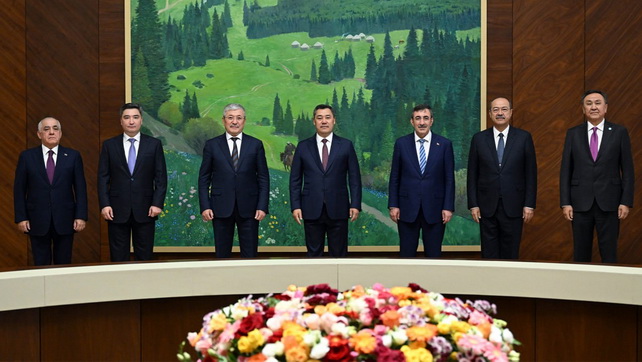By Brendan Cole
Copyright newsweek

Russia has dismissed claims that it had pushed conspiracy theories following the assassination of conservative activist Charlie Kirk on September 10 at Utah Valley University.A report by The Associated Press said that bots from Russia, as well as other rivals like China, and Iran, had spread disinformation about Kirk’s killing on social networks.But a spokesman for Russia’s embassy in Washington, D.C. dismissed the reports as part of a “pretext to fuel anti-Russian hysteria.”Newsweek has contacted the Russian Embassy via email for further comment.Why It MattersThe Russian mission’s comments follow accusations that Moscow sought to capitalize on Kirk’s killing by amplifying online conspiracy theories such as that the U.S. was slipping into a civil war.As debates about freedom of speech and partisan differences rage following the assassination, Russian state media appear to have relished the deepening of political divisions in the U.S. that have followed the killing.What To KnowThe AP said foreign disinformation makes up a tiny fraction of the debate about Kirk’s killing, but has provided an opportunity for Russia—and other adversaries—to inflame political polarization as alleged pro-Kremlin bots blamed the Democrats and predicted more violence.Joseph Bodnar, senior research manager at political advocacy organization the Institute for Strategic Dialogue told the AP that there were “multiple Russian campaigns attempting to exploit” Kirk’s killing.Among the theories about Russia being peddled were its alleged attempts to tie Kirk’s death to U.S. support for Ukraine and a conspiracy theory that the Ukrainian government killed him because of his criticism of that aid.Russian ultranationalist, Alexander Dugin, who is considered an ally of Kremlin leader Vladimir Putin, posted on X that the death of Kirk would precede a civil war and was proof of America’s collapse.Guests and anchors on Russian state TV channel NTV have even floated the idea of President Donald Trump being behind the killing, which while quickly dismissed, prompted a discussion about how it had led to a clampdown on left-wing groups.But the Russian Embassy in the U.S. rejected accusations Moscow was spreading disinformation about the killing.It said on Thursday that it did not interfere nor intend to interfere in the internal affairs of other states, including the United States.Embassy spokesman Andrey Bondarev said in a statement it was “unacceptable” that the killing was being used “to fuel anti-Russian hysteria,” state news agency Tass reported.What People Are SayingJoseph Bodnar, senior research manager at the Institute for Strategic Dialogue, told the AP: “We’ve seen multiple Russian campaigns attempting to exploit Kirk’s killing…they’re picking up domestic actors and amplifying them.”Russian Embassy spokesman Andrey Bondarev, per Tass: “Russia does not interfere and does not intend to interfere in the internal affairs of other states, including the United States.”What Happens NextTyler Robinson, 22, has been charged with Kirk’s murder and faces charges which include aggravated murder, obstruction of justice and felony discharge of a firearm and his next court hearing is scheduled for September 29 when a judge will decide whether the case proceeds to trial.



